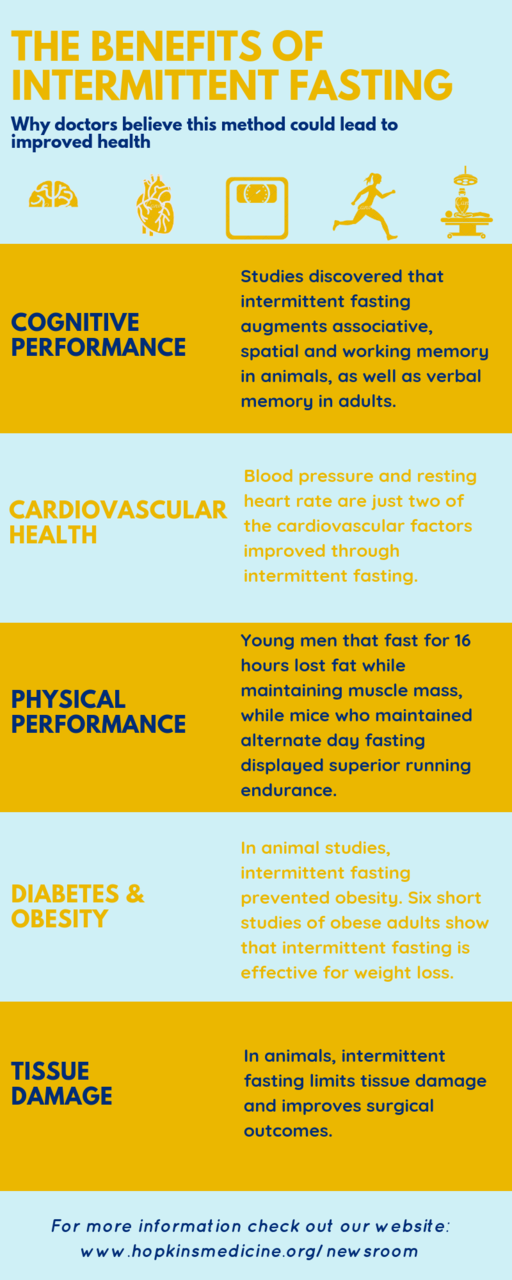Intermittent Fasting Sheds Weight and Promotes Longer Lifespan, Says Study
Here’s why intermittent fasting could be a good move in 2020.

Intermittent fasting (IF) is already known to help people lose weight, but a new study published in the prestigious New England Journal of Medicine suggests that routinely eating meals within specific windows of time could also promote a healthier and longer life.
People typically fast intermittently on one of two schedules. The first restricts daily feeding to just six to eight hours, such as from 2 p.m. to 8 p.m. or 10 p.m.
Mike “The Situation” Sorrentino of Jersey Shore fame recently revealed that he dropped an impressive 36 pounds using this version—and by exercising regularly—while serving an eight-month prison sentence for tax evasion.
https://www.instagram.com/p/B2684Z1lyN6
“I went to sleep every night at 10 p.m. I woke up every morning at 7 a.m. and did fasted cardio for about an hour,” Sorrentino told Entertainment Tonight. “I was practicing intermittent fasting while I was in prison. My window of intermittent fasting was between 16 and 17 hours on the weekdays, and 18 and 19 hours on the weekends.”
The second “5:2” IF schedule involves consuming meals as usual five days a week and just one moderately sized meal two days a week. That’s how Jimmy Kimmel managed to keep the nearly 30 pounds he lost on an initial eight-week diet at bay long-term.
https://www.instagram.com/p/B6eW8_nlzJD
But the suddenly trendy diet could have benefits beyond weight loss. In an article published by Johns Hopkins Medicine on the aforementioned new study, an expert researcher at the prestigious medical institution and 20-year-practitioner of IF concludes that it “could be part of a healthy lifestyle.”
Johns Hopkins neuroscientist Mark Mattson, Ph.D. notes that that four studies in both animals and people found that intermittent fasting decreased blood pressure, blood lipid levels and resting heart rates.
Two more studies conducted by University Hospital of South Manchester NHS Foundation Trust of 100 overweight women showed that those on the 5:2 IF diet lost the same amount of weight as women who only restricted calories. But, according to Mattson, the subjects on the IF diet performed better on insulin sensitivity tests and had reduced belly fat than those in the restricted-calorie group.

What’s more, an multicenter clinical trial conducted at the University of Toronto found that 220 healthy adults who maintained a calorie-restricted diet for two years performed better on cognitive tests designed to measure memory. While only an preliminary study, it indicates that dieting could be used to prevent neurodegeneration and dementia.
“We are at a transition point where we could soon consider adding information about intermittent fasting to medical school curricula alongside standard advice about healthy diets and exercise,” Mattson said while also acknowledging that the scientific community does “not fully understand the specific mechanisms of metabolic switching” and that “some people are unable or unwilling to adhere” to fasting programs.
That said, we know that fasting works for weight loss and that it could have long-term health benefits. If you’re thinking about giving IF a try in 2020, Mattson advises that “feeling hungry and irritable is common initially and usually passes after two weeks to a month as the body and brain become accustomed to the new habit.”
